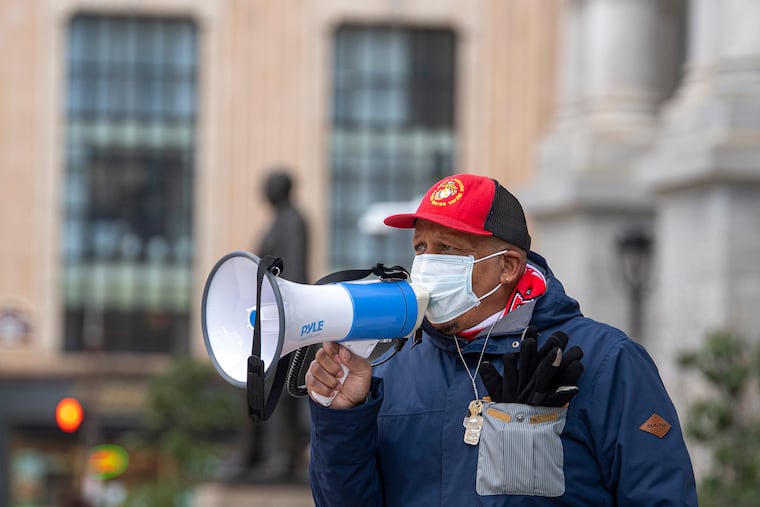It’s time to treat gun violence like the public health emergency it is | Jenice Armstrong
We need the same all-hands-on-deck approach to gun violence that we have given to the COVID-19 pandemic.

The young, aimless men who shoot up our city night after night need to feel the pain of the destruction they leave in their wake.
It wouldn’t stop the ceaseless carnage, but they need to at least see the tears their actions cause. I couldn’t help but think about this last week while participating in a Zoom call organized by Darin Toliver, cofounder of the Black Men at Penn School of Social Work, featuring relatives of homicide victims. It was intense. The pain was as raw as if the shootings that took their loved ones had just happened. It was hard to watch.
Aisha Drayton went first. Her son, Iseir George, 18, had been home from Albany State University on winter break in 2018 when he got a call and went outside to meet someone. His body was found outside her home.
“We later learned that Iseir was robbed and shot,” recalled Drayton, who lived in Atlanta at the time. “They got nothing. They took my son’s life for nothing.”
» READ MORE: Prosecutor says ‘balls were dropped’ in release of accused gunman before Brewerytown murder
Naisha Rhoden’s niece, Sandrea Williams, was just 17 when she was killed in May 2018. She had gotten her first car — a silver 2009 Nissan Sentra — and driven to her mother’s house in West Philly. She had just left her mother’s front steps when 23 shots rang out, one of them mortally wounding her.
“You can’t get over it. It was 2018 and the pain is like it was yesterday,” Rhoden said, breaking into tears. “Time don’t heal this wound. … Justice has not been served because the questions are why? Who? And none of those questions are answered.”
Allissa Jackson’s son Symir Walker, 16, had been walking with a friend around 10:30 p.m. on June 15, 2018, when he was fatally wounded. Moments earlier, she had warned him: “Sy, it’s getting late. You need to come in the house or come back on the block. He said, ‘I’m going back to the basketball court to pick up my hat.’ ” She had just hung up with him when gunshots rang out.
“I immediately called his phone back. Someone answered his phone and said, ‘Symir was hit.’ It was only around the corner from my house at 12th and Fitzwater,” Jackson recalled. “I ran around there barefoot. My son was lying on the ground. He had been shot in the back and the bullet hit his lungs, which made him bleed inside. My son was killed over neighborhood beef.”
“They don’t understand the pain that they caused me,” she said of Symir’s killer.
I’ll be forever haunted by the sadness on her and the other women’s faces. Toliver easily could have replaced them with so many others who have similar tales of heartbreak.
We’re barely into 2021 and Philly already has upward of 30 homicide victims. At this rate, we could easily surpass last year’s 499 slayings, the highest in 30 years.
I’ve been writing about this issue for years and remain convinced that limiting the number of illegal guns would go a long way. But since that’s not happening any time soon, we need to figure out what can be done in the meantime.
We need the same all-hands-on-deck approach to gun violence that we have given to the COVID-19 pandemic.
In 2018, Mayor Jim Kenney declared gun violence a public health emergency, but that didn’t go far enough. In September, Council passed a resolution introduced by Councilmember Jamie Gauthier calling for Kenney to declare a citywide emergency and develop an “unrelenting response” to it.
Retired postal worker Jamal Johnson, 63, on Monday began a daily protest in front of City Hall to draw attention to the resolution.
“I took it upon myself to do this so Mayor Kenney will see how serious I and others are about this issue,” Johnson told me.
He also declared a hunger strike on Monday.
I really wish he hadn’t stopped eating. I admire his zeal, but at the pace City Hall moves, Johnson is going to waste away to nothing.